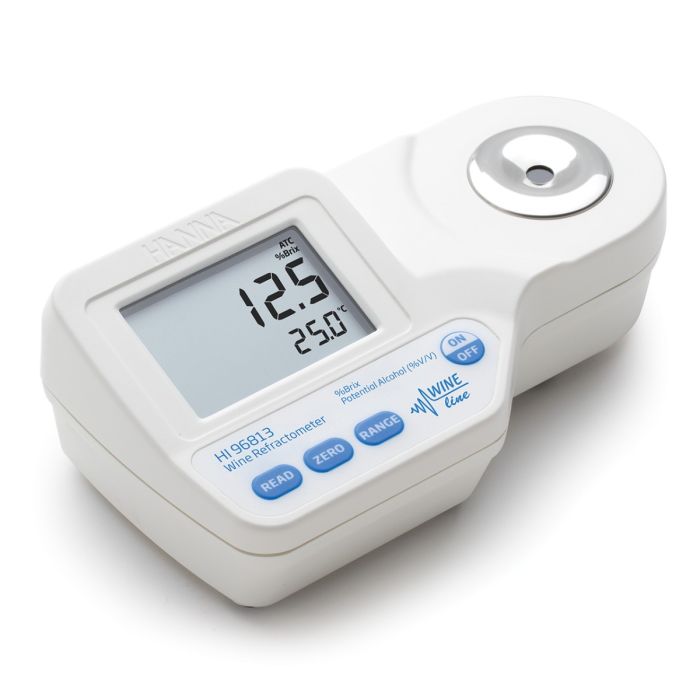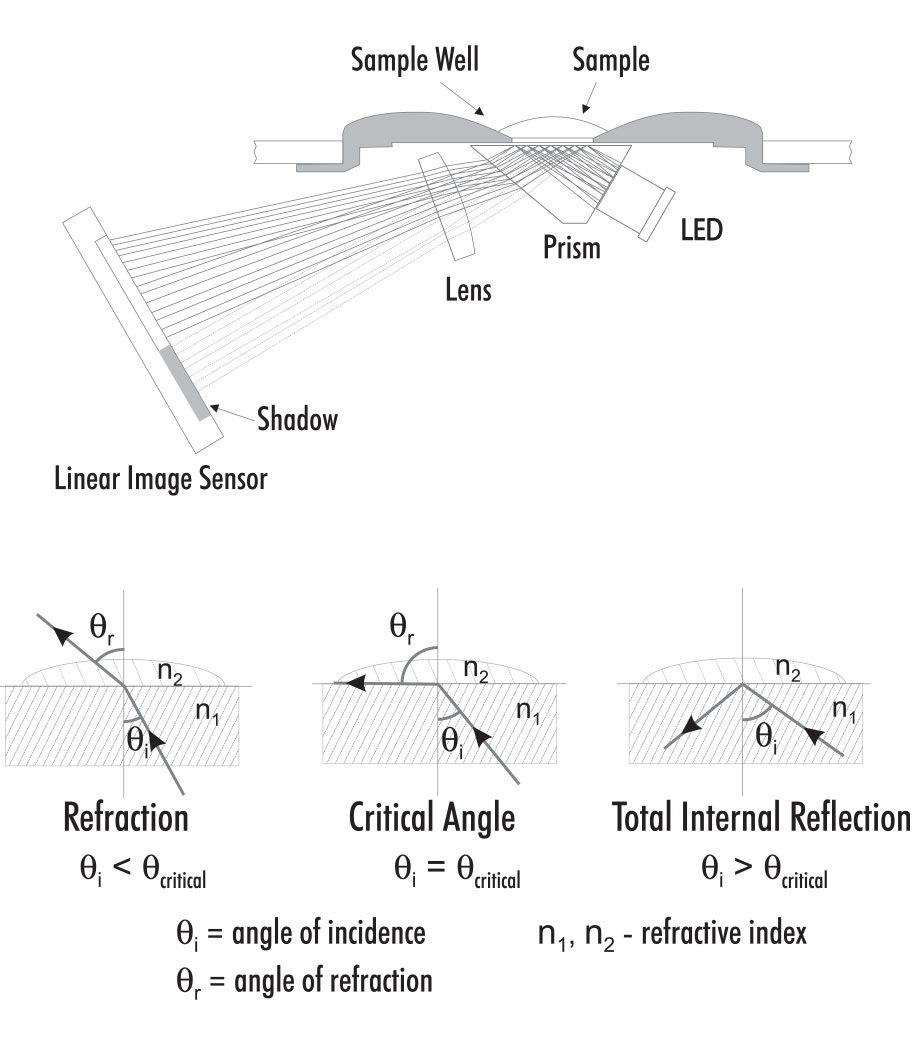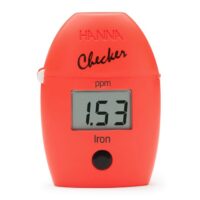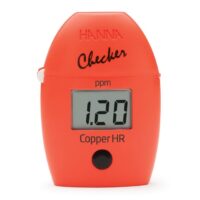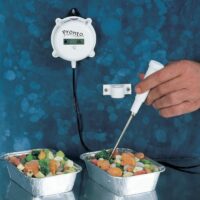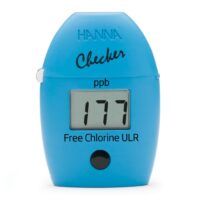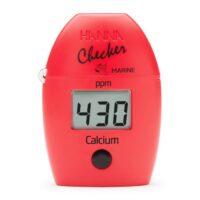Description

The HI96813 Digital Wine Refractometer converts the refractive index of the sample to sucrose concentration in units of percent by weight, % Brix (also referred to as °Brix). The conversion used is based on the ICUMSA Methods Book (International Commission for Uniform Methods of Sugar Analysis). Since the majority of sugar in grape juice is fructose and glucose and not sucrose, the reading is sometimes referred to as “Apparent Brix”.
The HI 96813 allows the user to tailor the instrument to their specific needs based on their experience, since no fixed conversion factor is universally applicable. The first conversion is based on the % Brix value and an adjustable conversion factor between 0.50 and 0.70 (0.55 is a common value).
Potential alcohol (%V/V) = (0.50 to 0.70) x % Brix
One drawback of the above equation is that it does not take into account the non-fermentable sugars and extract. A second equation is also available that takes these factors into account and can give a more accurate estimate of the alcohol content in the finished wine. This conversion is named “C1” on the meter, and uses the following equation:
Potential Alcohol (%V/V) = 0.059 x [(2.66 x °Oe) – 30] (C1)
* 1°Oe is roughly equal 0.2% Brix
The HI96813 is an easy to use tool for winemakers for measuring sugar and potential alcohol in grapes or must, in the field or in the lab.
- Designed for wine sugar and potential alcohol analysis
- Temperature Compensation algorithms based on sucrose solution
- 0 to 50 % Brix range with an accuracy of ±0.2% Brix
- 0-25 % potential alcohol range with an accuracy of ±0.2% potential alcohol
Making a Standard % Brix (Sucrose) Solution
To make a Brix Solution, follow the procedure below:
- Place container (such as a glass vial or dropper bottle that has a cover) on an analytical balance.
- Tare the balance.
- Weigh out X grams of high purity sucrose (CAS #: 57-50-1) directly into a beaker
- Add distilled or deionized water to the beaker so the total weight of the solution is 100g.
- Note: Solutions above 65% may need to be vigorously stirred or shaken and heated in a water bath to roughly 40℃ (104℉). Remove solution when sucrose has dissolved and allow to cool before use.
Example to prepare as 25% Brix solution:
| % Brix |
Sucrose (g) |
Water (g) |
Total (g) |
| 25 |
25.000 |
75.000 |
100.000 |
Refractive Index
The HI96813 takes measurements based on a sample’s refractive index. Refractive index is a measurement of how light behaves as it passes through the sample. Depending on the sample’s composition, light will refract and reflect differently. By measuring this activity with a linear image sensor, the sample’s refractive index can be assessed and used to determine its physical properties such as concentration and density. In addition to the linear image sensor, the HI96813 uses an LED light, prism and lens to make measurement possible.
Variations in temperature will affect the accuracy of refractometry readings, so the use of temperature compensation is highly recommended for reliable results. The HI96813 contains a built-in temperature sensor and is programmed with temperature compensation algorithms in accordance with the ICUMSA Methods Book Standard for a percent by weight sucrose solution at 20℃. These compensation algorithms vary based on the parameter being measured.
Features at-a-glance:
One-point calibration
- Calibrate with distilled or deionized water
Small sample size
- Sample size can be as small as 2 metric drops (100 μl)
Automatic Temperature Compensation (ATC)
- Samples automatically compensated for temperature variations
Quick, accurate results
- Readings are displayed in approximately 1.5 seconds
Dual-level LCD
- The dual-level LCD displays measurement and temperature readings simultaneously
Stainless steel sample well
- Easy to clean and corrosion-resistant
Battery indicators
- Battery percent level remaining at startup and low battery indicator
Automatic shut-off
- To conserve battery life the meter shuts off automatically after three minutes of non-use
IP65 water resistant protection
- Water resistant ABS plastic casing designed to perform under laboratory and field conditions.
Ordering Info
HI96813 is supplied with battery and instruction manual

